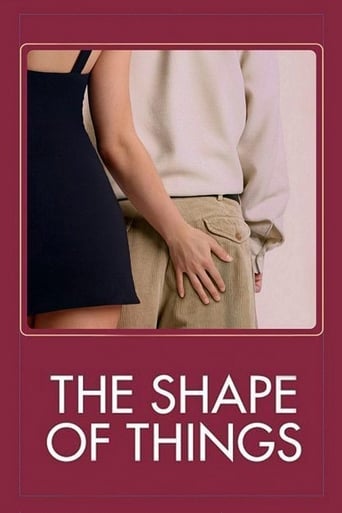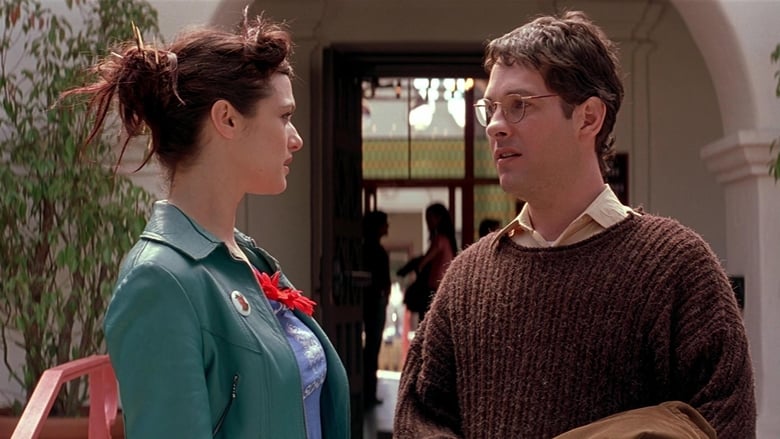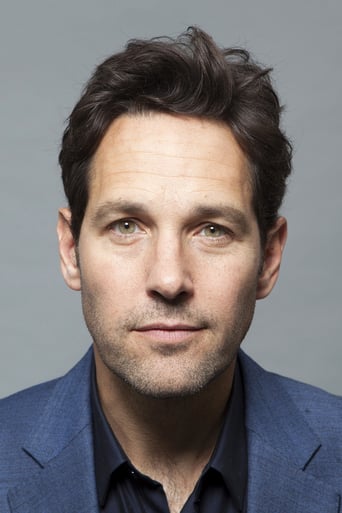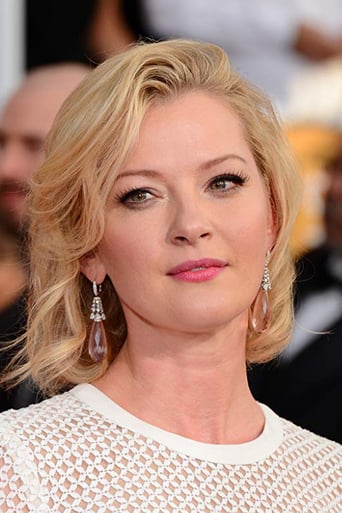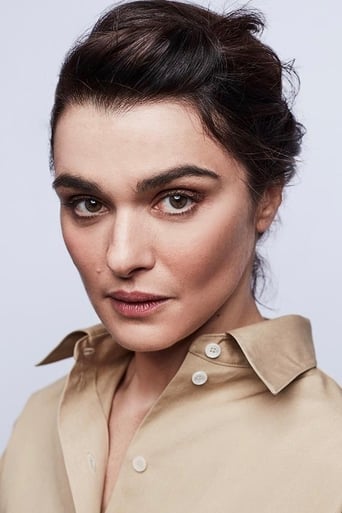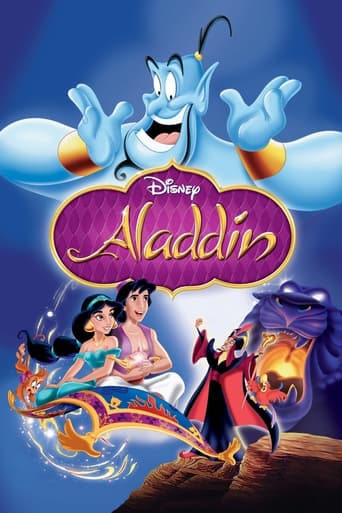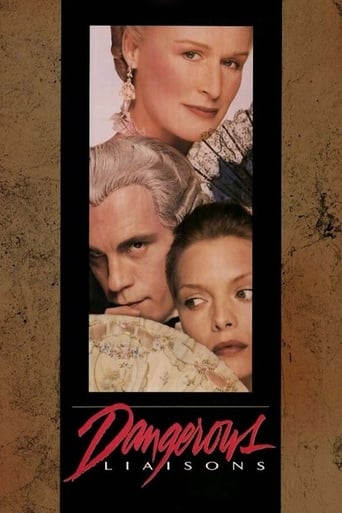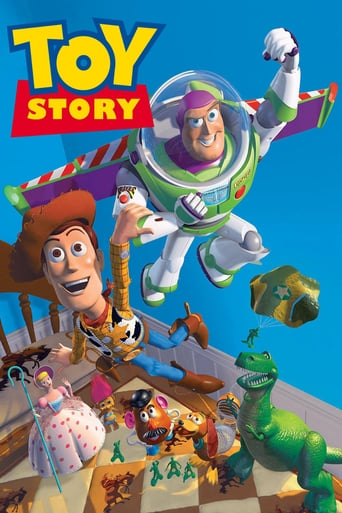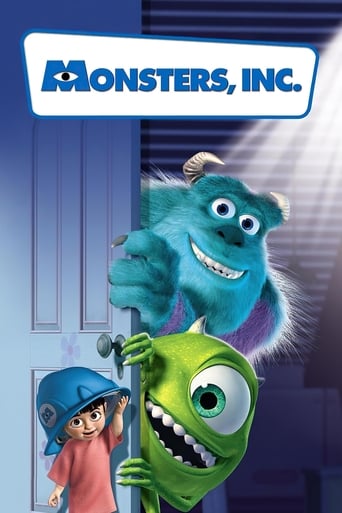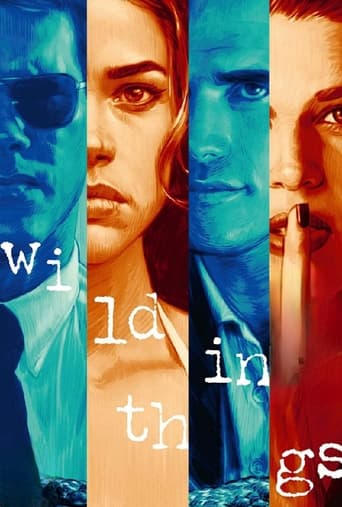The Shape of Things (2003)
Quiet, unassuming Adam is changing in a major way, thanks to his new girlfriend, art student Evelyn. Adam's friends are a little freaked by the transformation.
Watch Trailer
Cast


Similar titles
Reviews
Nice effects though.
Absolutely the worst movie.
The story, direction, characters, and writing/dialogue is akin to taking a tranquilizer shot to the neck, but everything else was so well done.
The plot isn't so bad, but the pace of storytelling is too slow which makes people bored. Certain moments are so obvious and unnecessary for the main plot. I would've fast-forwarded those moments if it was an online streaming. The ending looks like implying a sequel, not sure if this movie will get one
This is one of those movies that stops and you say, "You're kidding, that's the end?" Apparently, this was first a play, which shows in several overly-long scenes. But, even if I had seen this on stage, I would have been unhappy with the abruptness of the ending. I can handle ambiguous endings. In fact, many of my favorite films just sort of trail off, but this movies takes a very long time setting up an admittedly dramatic situation . . . and then just stops. Where's the rest of the story? There really should have been a more fully developed Act III or at the very least an epilogue. Since the movie has neither, it comes off as a one-trick pony, or worse yet, a cruel joke on the audience. I cannot recommend this one.
Neil Labute's "In The Company of Men" stars Aaron Eckhart and Matt Malloy as Chad and Howard, a pair of mid-level corporate executives sent to a boring regional branch for six weeks on a short term project. Frustrated, recently burnt by women, stuck in a career rut and high on corporate testosterone, the duo hatch a plan. "Let's hurt somebody," alpha-male Chad says. Pretty soon they're cooking up a Machiavellian scheme to locate an insecure woman, date her simultaneously, and dump her in the most vicious way possible. The woman they set their sights on is handicapped co-worker Christine. Christine has a speech impediment, but what she says doesn't matter to Chad anyway. Denied a voice, Chad handles her like an object to be acquired, traded, owned and discarded.Labute is heavily influenced by David Mamet. Most of the film finds Chad spewing corporate maxims, strutting about like a Master of the Universe and forcing co-workers to grovel at his feet. Eventually its revealed that Chad's scheming extends even to his "friend" Howard. He's your classic Extreme Sociopath, charming but endlessly manipulative. Everyone's his puppet. And as with Mamet's "workplace flicks", Chad's less a character than an extreme manifestation of a corporate logic whose drive for profit, ownership and expansion slowly infects how everyone around him thinks, acts and feels. Eventually Chad becomes both a norm and standard to aspire to. He's the new hypermasculinist ideal, for whom humiliation, domination, degradation, exploitation and suffering conflate with success. It's not only that aggressive competition in business affects masculinity, romance and sexual behaviour, but that corporate logic magnifies power, the ego and sanctions what is essentially various forms of rape. This stance is the opposite of how contemporary ideology is (mis)perceived, in which "business" is seen to be "neutral" and "mutually beneficial".Chad's a character who's popped up in many films and stories. More interesting is Howard, a fairly meek guy who is corrupted and made to do things even more horrible than Chad. The real world is made up of Howards. Chad's the anomaly, existing always more as spirit or underlying drive.La Bute penned "The Shape of Things" as an attempt to reverse the gender roles of "Company". Arguably his best film, it's also part of a tight trilogy by Labute about people's perceptions of physicality ("Fat Pig", "Reasons to be Pretty", "Shape of Things"). Massive spoilers ahead."The Shape of Things" initially unfolds like a conventional romantic comedy. We're introduced to a dishevelled English Literature student called Adam, played by the always likable Paul Rudd, and an attractive art student called Evelyn (Rachel Weisz). The film then becomes a modern version of Adam's seduction by Eve. Eve ensnares Adam, manipulates him into becoming "fit", "attractive" and "healthy", and then reveals that she has never had romantic feelings toward him; she was merely using Adam as a sort of living art installation, a clay puppet, deceptively sculpting and moulding his mind and body. When Eve reveals her scheme to Adam – she invites him to an art installation in which he is quite literally presented as an exhibited object, her gaze now likened to the masculinist gaze of "In The Company of Men" - he's dumbfounded. Eve's tricked him into getting cosmetic surgery and altering his personality and physique. She's reconstructed him. Treated him as a chunk of malleable flesh.Unlike "Company", we're then invited to work our way through the messy ethical minefield of the victimiser's actions. For while Chad deservedly gets no sympathy in "Company", the relationship in "Things" is much harder to work out. Is Adam now a better person? Was Eve's love, no matter how virtual, beneficial to Adam? Was it ever real? How much authority should be given, or do we give, to artists? How much ethical responsibility do they hold or exercise? How do power relationships within romantic couples overlap with the power we grant artists? Don't Eve's actions echo the sexism of "Compny"? What is acceptable artistic material? Do the means, in art, justify the ends? At what point does creation become manipulation, is manipulation ever justified and at what point does creation destroy (see "Vertigo")? Is Adam now a beautiful work of "art" despite Eve's actions? How do Eve's actions differ from other vampiric artists, who take from and/or abuse outside sources? What does the film say about romance and the lover's desire to alter their partner? Art may be made by monsters, but what about the audience who enjoys? And on and on it goes.The film features a shot of the sentence "There is no morality in art". The quote's by Chinese novelist Han Suiyin, and is stencilled over Eve's art gallery. Throughout the film Eve articulates a similarly postmodern stance: "it's all subjective", she says, "moralists have no place in an art gallery". The firm itself is structured, we think, as an artist's apologia. Its first scene portrays Eve as an iconoclast who thrice breaks the rules, stepping over a rope at a museum, taking an illegal photograph of a sculpture and painting a penis onto a statue which has been censored by uptight museum curators. "You stepped over the line, Miss," curator Adam prophetically says when he firsts meets her. But as Eve makes clear, there should be no lines. We agree with her for much of the film. Afterall, hasn't she liberated Adam? By the film's end, however, we're asked to reconsider Eve's stance. Labute himself reconfigures Han Suiyin's quote. It's not that "there is no morality in art", in the sense that morality should not apply to art, but more literally, that "there is now, no longer, morality in art". Artists have no ethical compass, social feeling or attachment toward world, community or fellowman. Such art doesn't only exist in a vacuum, but is inherently selfish and nihilistic. You know, like Chad. 8.5/10 - Near masterpiece.
Within The Shape of Things lies a quite tragic tale of phoney romance, threatened friendship, manipulation and temptation they are strong ingredients that wouldn't go amiss in a serious or a 'proper' coming of age film, either that or a neo-noir of some sort. The ideas and ingredients behind the film are interesting but the most annoying thing about it all is that it didn't feel like it all came together in the manner I wanted it to in this film. By the end I felt frustrated and disappointed; not with the film but with a lot of the character's actions the payoff to do with human beings as works of art transformed from one thing to another whiffs of a ball of clay being moulded into a masterpiece of the human form; but on a dramatic level it just didn't work for me and it's interesting to note that a lot of the dramatic scenes that do work happen much earlier in the film.But I suppose the thrill is always in the chase or at least in the 'getting there'. The scenes revolving around who's lying and who's telling the truth; who's having affairs with who and what everyone's priorities are when it comes to friendships are the most interesting ones in the film, the finale is merely the thread that sews everything together and proves it is possible to mature as a person through interaction with other people would lead character Adam Sorenson (Rudd) have had a fling with another woman in the film had he not met Evelyn Ann Thompson (Weisz) in the first place? Would he have had the confidence to engage with her in the manner he did? Probably not, but the manner in which we can visually see Adam prior to meeting Evelyn and the manner in which he dresses post the meeting means we can work it out for ourselves; without the dénouement.So Adam is a part time security guard working in a gallery; a student with what we have to assume to be a maximum of two friends in Phillip (Weller) and Jenny (Mol). But it is at work where he meets Evelyn, a girl with strong beliefs and a great deal of passion towards art as a whole and it is her passion for art that acts as the catalyst for the study of the film, that being Adam's moulding which is supposed to be a work of art in itself. The Shape of Things is a film that lasts a little over an hour and a half but only ever spans about a half dozen locations and contains a cast of about four people. In this sense, the film is an achievement because it remains somewhat engaging on a character driven level as there isn't anything else to distract it from its study. When I found out after viewing it that it was based on a play penned by the same director, I could really see the link between stage and screen and how a lot of the scenes in the film might work as a simplistic, 'cut to the chase dialogue', driven piece with only the people that matter.But this is all I can give the film credit for bar the feint drama that evolves to do with: who's lying to who and who's having an affair with who and blah, blah, blah that occurs at random points throughout. Truth is Rachael Weisz does not come across as the seductive femme fatale I think director LaBute was looking for any more than she does a strong and independent young woman who just happens to take an interest in art. I think it is more down to Adam's naivety that she gets what she wants out of him and perhaps his own lack of exposure to the opposite sex in the first place that gets him where he goes. One minute Adam is wearing glasses and a 'nerdy' jumper that hindered his and Phillip's attempts to pull women years before; the next he has shed it all and is on the brink of getting nose jobs but while this study, or at least 'idea', of an individual doing something through the blindness of love is apparent, it just doesn't work on a dramatic level mostly due to the speed of which events progress.Evelyn's plan is to do with shaping someone from one thing into another; she needs two things to work in her favour for this to happen: firstly, Adam needs to have had minimal contact with the opposite sex in order for her to come across as quite alluring and secondly, Adam needs to have kept a journal of events in his life. Subtract these two things, especially the second point, and you don't have a film. The notion is highlighted by Evelyn's inability to communicate or indeed get along with Adam's egotistical friend Phillip who doesn't fall into either of these boundaries.These plot contrivances are the essence of the idea and although I don't know an awful lot about the stage or stage performances, they are not really cut out for inclusion in a film and consequently aid in the diminished atmosphere when the twist is revealed rather than grip us and force us into thinking how events got to this point, the twist lets loose the grip the film may have had on us somewhat and consequently falls minutely flat. To make matters a little more disappointing, the film deems necessary to include a whispered sentence from one character to another from earlier on in the piece which, I feel, is supposed to paper over whatever cracks the finale plus twist may have brought it is the maker's get out of jail card just in case the finale falls flat on certain viewers and it doesn't work. The film as a whole, however, does work but only just about.
This film is badly produced, badly written, and the only reason I gave it three out of ten is because of the twist at the end. It was a very intelligent story with a lot of potential but was delivered in a way that did not do it justice. Rachel Weisz is a rather annoying actor in my view, but quite a reasonable one, however she obviously doesn't have the same skill when producing a film. At the same time the story leading up to the big twist at the end is banal and terribly written, the dialogue is poor and makes you want to turn the film off. In my opinion, this film is only popular because there are a lot of pretentious morons out there who are obsessed with the 'downfall of society' and everything being based on looks. I am willing to bet that the majority of these people are ugly (or 'alternate') teenage girls.DO NOT WATCH!

